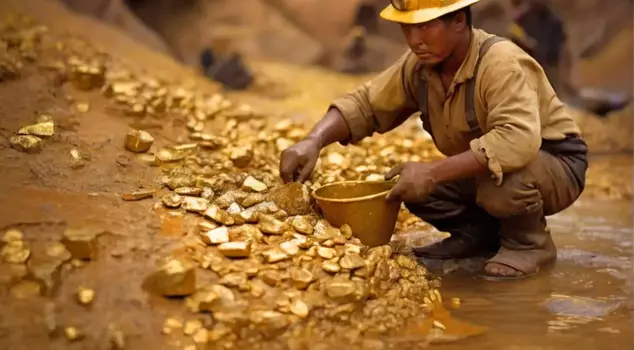
24.05.2025 15:44
Scientists have revealed that rare metals associated with gold are leaking from the core in Hawaiian lavas. This finding challenges existing notions about the Earth's deep internal structure and the origins of precious metals. Dr. Nils Messling, a geochemistry expert involved in the research, emphasized the significance of the discovery by stating, "We literally found gold."
A groundbreaking study conducted at the University of Göttingen in Germany has revealed that material from the Earth's deep core can reach the surface. Rare metal traces found in lava samples from the Hawaiian Islands challenge the theories about the planet's internal structure that have been accepted until now.
METAL TRACES COMING FROM 3 THOUSAND KILOMETERS DEEP
According to Greek Reporter, scientists detected an unusual signal of the special isotope of the element ruthenium, 100Ru, in the lavas of Hawaii. It is stated that this signal could only have come from the core-mantle boundary — that is, from a depth of about 3 thousand kilometers.
GOLD RISING TO THE SURFACE: A NEW SOURCE THEORY
The research team expresses that these findings suggest not only ruthenium but also valuable metals like gold and platinum could seep from the core to the surface. Geochemistry expert Dr. Nils Messling emphasized the significance of the discovery with the words, "We literally found gold."
IS THE POWER THAT FORMED THE HAWAIIAN ISLANDS THE CORE?
Other scientists in the team also note that this deep mantle material reaching the surface has led to the formation of volcanic islands like Hawaii. It is suggested that hundreds of quadrillions of tons of rock mass have risen from the core to shape the surface.
A NEW PERSPECTIVE ON THE PLANET'S INTERNAL DYNAMICS
This discovery indicates that the Earth's core is not a completely separated stable structure from the mantle, but rather an active exchange of materials. This could profoundly change our understanding of both geology and the origins of valuable elements.